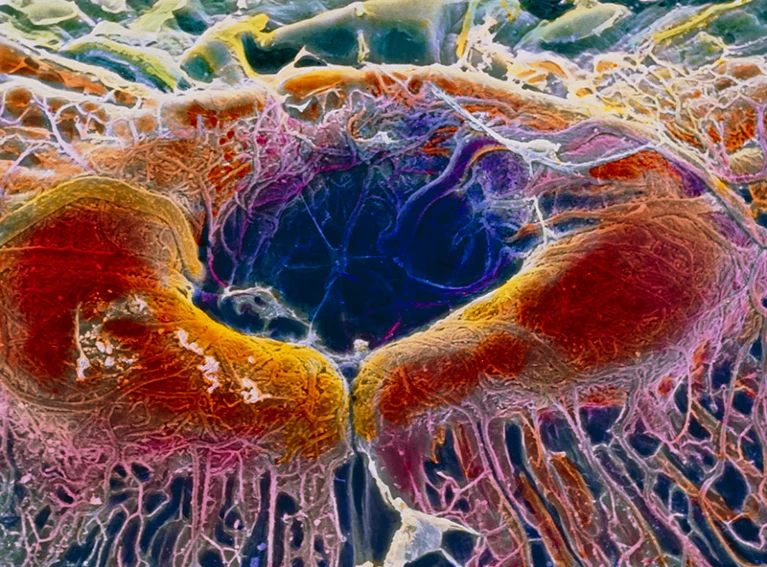A groundbreaking study published in Cell on February 26, 2024, suggests that some devastating eye diseases previously believed to be solely genetic might have a bacterial component originating from the gut. The findings offer new hope for potential treatments, but also raise questions and concerns within the scientific community.
Inherited retinal diseases, including retinitis pigmentosa, affect millions worldwide, with mutations in the gene Crumbs homolog 1 (CRB1) being a major culprit. Led by co-author Richard Lee, an ophthalmologist from the University College London, the research team explored the unexpected connection between gut bacteria and retinal diseases.
Previous studies challenging the notion of eyes being impervious to bacterial invasion piqued the researchers’ interest. They found that CRB1 mutations not only weaken the protective barrier around the eye but also affect cell linkages in the colon lining. Using Crb1-mutant mice with depleted gut bacteria, the team observed a significant reduction in retinal cell layer distortion compared to mice with typical gut flora.
Moreover, administering antibiotics to the mutant mice showed a remarkable decrease in eye damage, suggesting a potential treatment avenue for individuals with CRB1 mutations. Co-author Lai Wei from Guangzhou Medical University underscores the transformative impact such a discovery could have on affected families.
However, neurobiologist Jeremy Kay from Duke University urges caution, emphasizing the complexity of the issue. While the results present a promising concept, Kay warns against premature excitement, citing uncertainties regarding the translation to human subjects. The study’s timeline may not align with the typical progression of CRB1-associated eye diseases, and the extent of bacterial migration to the eye remains unclear.
Despite these reservations, the possibility of using antibiotics as a therapeutic intervention warrants consideration. Kay acknowledges the potential of antibiotics to mitigate retinal damage but emphasizes that they may not reverse or cure the underlying genetic changes induced by CRB1 mutations.
Dr. Martin Kriegel from the University of Münster underscores the enigmatic nature of bacterial migration from the gut, suggesting that even minimal bacterial presence in the eyes could yield significant effects due to unknown mechanisms.
While uncertainties persist, the study marks a pivotal moment in understanding the interplay between gut bacteria and eye diseases. As researchers continue to explore this novel avenue, hopes remain high for the development of effective treatments to combat these debilitating conditions.












